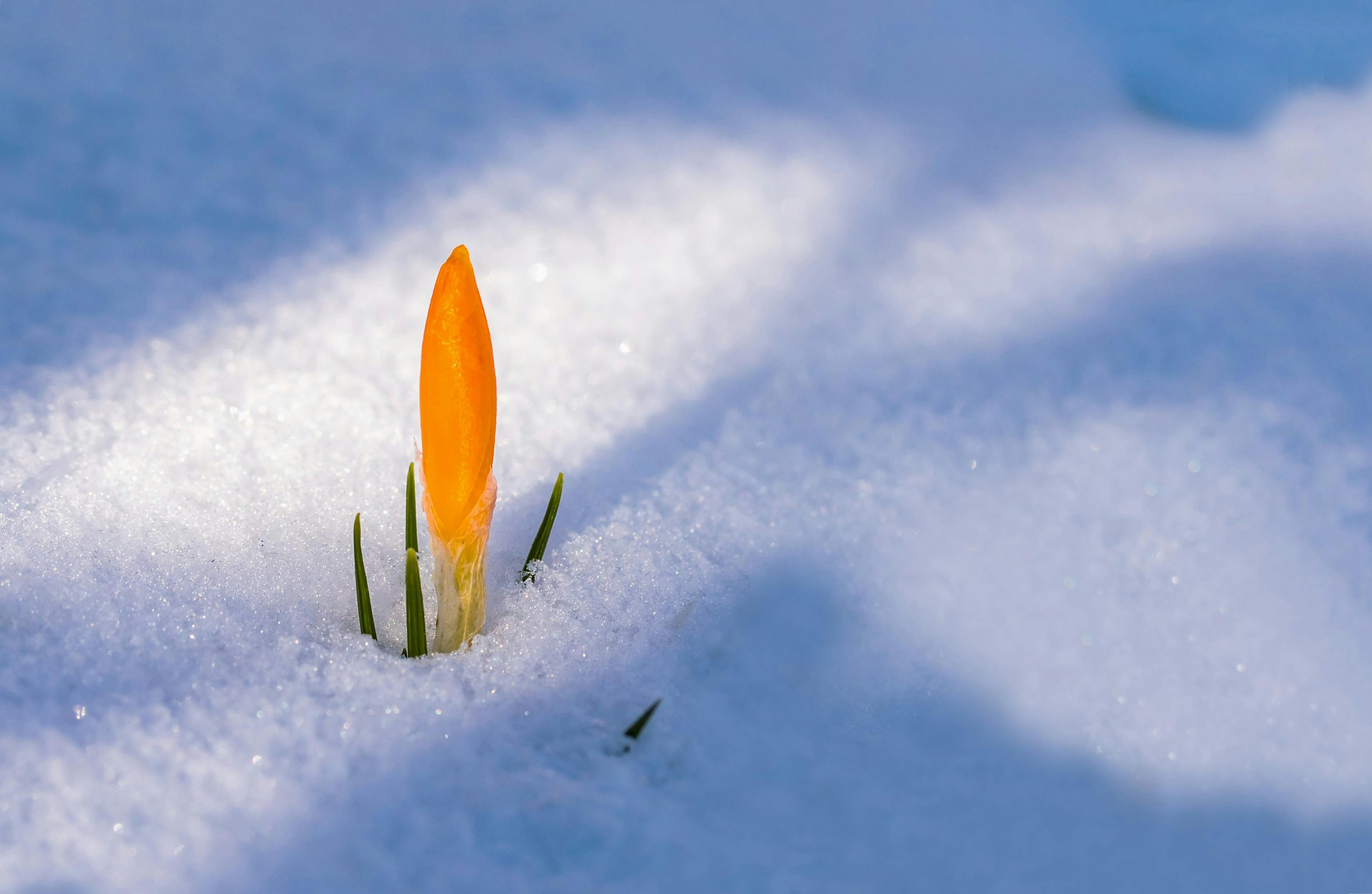“It smells like it’s gonna snow.” If you haven’t lived in a four-season climate, that comment may sound strange, but those who have experienced winter know the distinct fragrance that tells them what’s coming. As the seasons change, there is a change in the air. The frozen ground of winter smells different than it does as it thaws in the spring, and the warm, heavy air of summer gives way to the cooler, crisper perfume of fall.
The grace of living in four seasons is that each year we see a stunning display of the cycle of life: the new birth of spring, the full richness of summer, the harvest and grace of fall, and the quiet shutting down of winter. The greatest transition, though, happens as the cycle begins again.
By the end of winter, everything looks dead — heavy gray skies, scraggly bare trees, trodden brown grass peeking out in patches where remnants of dirty snow have melted. But then, right around Easter time (on this side of the equator), the world starts to come alive again. That melted snow has watered the ground, and dormant trees awaken to drink from it. Buds appear, then leaves and flowers. The grass gets green, birds sing, and the sun shines.
Jesus tells us in Luke’s Gospel today, “When their buds burst open, you see for yourselves and know that summer is now near.” Every year is an allegory — there is life after death; God makes everything new. Jesus talks to his Apostles about “these things” taking place and they are not easy ones: the destruction of the temple, signs and persecutions. Then the Coming of the Son of Man. He seems to be reminding us that it will be difficult, hard things will happen, and sometimes things will get worse before they get better. We will all see our winter. But trust.
God keeps His promises, and He reveals himself to us in the very world He created and in Scripture. Jesus tells us, “Heaven and earth will pass away, but my words will not pass away.” Our call is to keep our eyes open and see what is unfolding. Just as that first green crocus pushing up through the snow tells us warmer days are coming, God will reveal Himself to us. There are signs. Notice them, and remember, no matter how hard the winter, spring is coming. Trust that the battle has already been won.
“Huele a que va a nevar”. Si no han vivido en un clima de cuatro estaciones, ese comentario puede sonar extraño, pero quienes han experimentado el invierno conocen la fragancia distintiva que les anuncia lo que está por venir. Con el cambio de estaciones, se produce un cambio en el aire. El suelo helado del invierno huele diferente al descongelarse en primavera, y el aire cálido y denso del verano da paso al perfume más fresco y vigorizante del otoño.
La gracia de vivir en cuatro estaciones es que cada año presenciamos un despliegue impresionante del ciclo de la vida: el renacimiento de la primavera, la plenitud del verano, la cosecha y la gracia del otoño, y el tranquilo final del invierno. Sin embargo, la mayor transición ocurre cuando el ciclo comienza de nuevo.
Al final del invierno, todo parece muerto: cielos grises y densos, árboles desnutridos y desnudos, hierba marrón pisoteada que asoma en parches donde se han derretido los restos de la nieve sucia. Pero entonces, justo en la época de Pascua (a este lado del ecuador), el mundo comienza a cobrar vida de nuevo. La nieve derretida ha regado la tierra, y los árboles inactivos despiertan para beber de ella. Aparecen los brotes, luego las hojas y las flores. La hierba reverdece, los pájaros cantan y brilla el sol.
Jesús nos dice en el Evangelio de Lucas de hoy: “Cuando ven que empiezan a dar fruto [los árboles], saben que ya está cerca el verano”. Cada año es una alegoría: hay vida después de la muerte; Dios lo hace todo nuevo. Jesús habla a sus apóstoles sobre “las cosas que les he dicho” que están sucediendo, y no son fáciles: la destrucción del templo, las señales y las persecuciones. Luego, la venida del Hijo del Hombre. Parece recordarnos que será difícil, que ocurrirán cosas difíciles, y que a veces las cosas empeorarán antes de mejorar. Todos veremos nuestro invierno. Pero confíen.
Dios cumple sus promesas y se nos revela en el mundo que creó y en las Escrituras. Jesús nos dice: “Podrán dejar de existir el cielo y la tierra, pero mis palabras no dejarán de cumplirse”. Nuestro llamado es mantener los ojos abiertos y ver lo que está sucediendo. Así como el primer azafrán verde que brota entre la nieve nos anuncia la llegada de días más cálidos, Dios se revelará a nosotros. Hay señales. Obsérvalas y recuerda: por muy duro que sea el invierno, la primavera está llegando. Confía en que la batalla ya está ganada.
 Pamela Kavanaugh is a grateful wife, mother, and grandmother who has dedicated her professional life to Catholic education. Though she has done her very best to teach her students well in the subjects of language and religion, she knows that she has learned more than she has taught. She lives, teaches, and writes in southwest suburban Chicago.
Pamela Kavanaugh is a grateful wife, mother, and grandmother who has dedicated her professional life to Catholic education. Though she has done her very best to teach her students well in the subjects of language and religion, she knows that she has learned more than she has taught. She lives, teaches, and writes in southwest suburban Chicago.
Feature Image Credit: Myriams Fotos, pexels.com/photo/flower-growing-through-snow-on-ground-15021740/
The views and opinions expressed in the Inspiration Daily blog are solely those of the original authors and contributors. These views and opinions do not necessarily represent those of Diocesan, the Diocesan staff, or other contributors to this blog.

